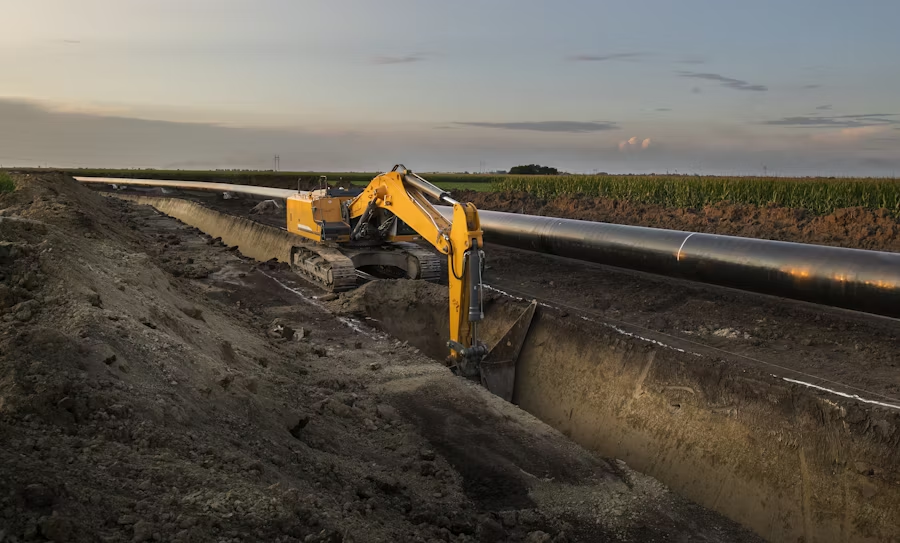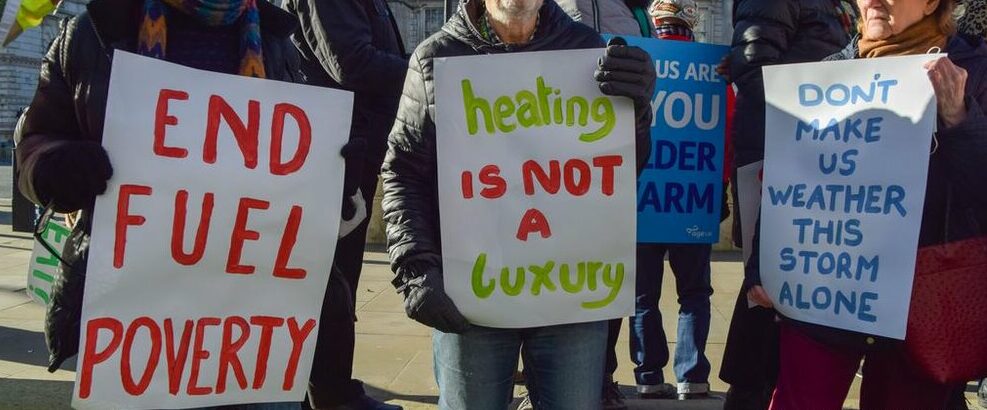In a gung-ho story about how Germany’s failed energy transition is secretly succeeding brilliantly, Clean Energy Wire near the end quotes the head of Greenpeace Germany, Martin Kaiser, that a drop in emissions in 2023 is “deceptive” and that… wait for it… “Nobody should confuse a struggling economy with climate protection”. Yet the two are inseparable. The problem here is not just that climate policies have led to economic struggles everywhere they’ve been tried, or that if the economy collapsed, so would emissions, something Maurice Strong once seemed to recommend. It’s that climate policy forces us into the world of trade-offs, yet no one involved will tell us what they really want to do in the face of hard choices.
It’s not a hypothetical. We do have several painful real-world examples of economies doing what climate alarmists wanted on emissions because they’re doing what virtually nobody wanted on prosperity. For instance, as Gina Pappano of Stop Divestment and Invest Now recently observed:
“The good news is that Britain claims that it has almost halved its greenhouse gas emissions from 800m tonnes in 1990 to 417m tonnes in 2022. The bad news is that the emission decreases are due in large part to deindustrialization.”
She pointed to a piece in The Telegraph by Jonathan Leake that began:
“It’s one of the Government’s proudest boasts. Britain, it claims, has almost halved its greenhouse gas emissions from 800m tonnes in 1990 to just 417m tonnes in 2022. It’s a staggering decrease – a faster decline than almost any other advanced nation. And it is a fact that is used regularly by politicians to trumpet the UK’s progress. ‘We’re far ahead of every other country in the world,’ Rishi Sunak said in September. ‘We’ve had the fastest reduction in greenhouse gas emissions in the G7. Down almost 50pc since 1990. France? 22pc. The US? No change at all. China? Up by over 300pc.’”
But some journalists are still skeptical of politicians and activists even when they’re climate alarmists. So Leake then asks:
“can a nation whose population has grown by several million in the past two decades, with each citizen consuming more than ever, really have cut emissions by such a massive amount?”
And then he warns of some statistical jiggery-pokery. The figures appear to be accurate if you count “the greenhouse gases emitted within Britain’s borders, from power stations, cars, homes, offices and what’s left of industry. These are known as territorial – or production – emissions.” But it falls to bits if you look more closely because:
“What they exclude is everything else, meaning all foreign-produced cars, clothes, food and every other import as well as the shipping that imports those goods into the UK, and most of the aviation fuel burned for passenger flights. These overseas emissions used to be relatively small, but as the UK’s own industries have shrunk, they have become an ever-increasing proportion of the overall carbon footprint.”
So merely by trashing their own economy, they’ve been able to move the emissions that enable their lifestyle in the short run somewhere else and pretend it wasn’t them, like Orwell’s nasty characters who are “always somewhere else when the trigger is pulled.”
There’s something a bit fishy about the Clean Energy Wire story too. It starts:
“Germany is largely on track to reaching its national target to reduce total greenhouse gas emissions by 65 percent by 2030, but is set to fail its EU goal for sectors such as transport, buildings and agriculture, according to projections by the country’s Federal Environment Agency (UBA).”
If the aggregates look good, but the components look lousy, we suspect someone is not being entirely forthright. Including the UBA, it turns out, because:
“If Germany manages to implement climate policies as planned – including a rapid renewables expansion, the phase-out of fossil fuels and the switch to clean technologies in all sectors – energy and industry emission cuts will even exceed the sector targets, but those from transport and buildings will remain far off track.”
Here it’s not even a matter of the Spartans’ legendary laconic reply to Philip of Macedon, the single word “if”, because even if unicorns spring into the air over Germany, major sectors will keep emitting. Like “transport”, also known as “getting things from where they’re made to where they’re needed, and people from where they are to where they need to be”. Just that? No. Also buildings, as in one of the three key elements in food, shelter and clothing.
As for “if the country manages to implement all its planned policies, from massive renewables expansion to switching industry to climate-friendly production, it is set to reduce emissions by almost 64 percent by 2030”, if I manage to grow to six foot nine I am set to dunk a basketball. So here we are in Sparta.
We’re certainly not in Oz. The piece adds that:
“If Germany’s aggregated emissions in these sectors [transport, buildings and, speaking of food, agriculture] exceed the limit in one year, the government is obliged to buy emissions allocations from other countries, which overachieve. This could become costly as more and more countries struggle to meet their targets in these sectors and thus compete for the allocations.”
In short, once you’re done with low-hanging fruit like replacing coal with natural gas, only by deliberately crippling your economy can you reduce emissions further, Herr Kaiser. The skeptics have been clear all along when they equate, rather than confuse, poverty with emissions reduction, and you are the one who’s been confused.
As for greenwashing, Kaiser did complain that “The superficially favourable emissions figures are largely due to significant declines in production in energy-intensive industry.” Awkward, that. Especially if for the last three-quarters of a century the German “economic miracle” was driven by production in energy-intensive industry and now it’s withering and nothing is taking its place.
It’s getting harder to ignore. As the piece noted, economy minister Robert Habeck tried to put a smiley face on the situation but did concede that:
“2023 was an exceptional year for the German economy, with high energy prices and a sharp decline in production, particularly in the energy-intensive industry. The year 2023 is nothing to write home about”.
Oh but it is. Write a letter from Planet Green Transition to the Earth saying only by crippling the economy can we reduce emissions. At any rate, nothing else has worked so far and it’s not for want of trying.



China has a stated intention of taking over the world by 2049, one hundred years after the CCP took over China. The Western world, which now occupies the spot where China wants to be, is committing economic suicide by shutting everything down and ceding it to China. One could almost believe that the climate change industrial complex is being run by and for the exclusive benefit of China. Naaah, that's just paranoia?
Roger,you are 100% correct.And the ones pushing for sacrifices in the name of virtue signaling will themselves make no meaningful sacrifices.
Meanwhile,China adds another coal plant every week on average.The UK Conservatives should re-name their Party.Churchill and Thatcher would
roll in their graves if they seen what it has become today.
Societies taking drastic actions to solve problems supported by little evidence is hardly new. The book Extraordinary Popular Delusions and The Madness of Crowds Written by Charles Mackay, first published in 1841 Chronicles several instances of large scale irrational decision making. I find some striking similarities between today's climate alarmism and this book's account Of Witch mania In 16th and 17th century Europe. Often, people were accused of practicing witchcraft as an explanation for extreme weather or other environment- related Disasters that occurred, and such accusations were (obviously) based on scant evidence But rather on the panic of the crowd. Such fear resulted in the deaths of 10s if not hundreds of thousands of people. The actions being taken today based upon the alarmist view of our climate future also have much less genuinely scientific evidence than most people realize And appear to be based upon some innate Pessimistic fear Instead. And I have no doubt that such fear will lead to the impoverishment And re - impoverishment of large numbers of people at the very least if we do not start coming to our senses.